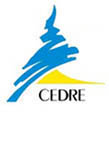The Doubin law
Originally limited to distribution in mainly technical sectors (automobiles, farm machinery, public works equipment, fuel), the networks currently cover a much greater field of activity, even unlimited, ranging from food to clothing, through furniture, appliances, vacation, hotels, etc.. The consumer must now turn to these networks to meet all his needs, whether domestic or professional.
If franchising has contributed to the expansion of sectors affected by these new forms of distribution, its role is equally important in the field of services.
Indeed, franchising allows individuals, often former managers, civil servants or employees, to work and invest money in the reiteration of a proven model, while remaining independent.
But, price of success (the French franchising is the leader in Europe), too many non-professionals have started up in franchising without providing sufficient guarantees to franchisees, which may devalue the image of the franchising to the public.
If distributors are knowledgeable professionals who have the obligation to be informed on the network which they want to join, the fact remains that they must be able to do so. Franchisors must give them the means to obtain information before letting these candidate franchisees commit themselves.
In 1978 the United States, the “Full Disclosure Law” was entered into force, which imposed an important obligation of pre-contractual information for prospective franchisees. This law was reformed in 2007.
In 1981, Olivier Gast called for the adoption of a preventive law in order to moralise the profession and to protect prospective franchisees, and in March 1985 proposed a bill on franchising networks and other commercial networks.
Without ever regulating relations between franchisor and franchisee, which would have been inevitably immobilizing and unnecessary, the aim was to oblige the franchisor and other licensors, to inform preventively, clearly and honestly, any candidate wishing to integrate its network, on its formula, its product and its market.
The purpose was thus to reassure the public on the reliability of these systems to defend the interests of all franchisors, licensors and generally of all companies involved and to protect candidates franchisees .
The legislator consecrated these goals in the Law number 89-1008 of 31 December 1989, called “Doubin Law”. Contractual relations between the parties continue to be based on the principle of contractual freedom, but the legislator established a mechanism of prior information to the benefit of the supposedly ignorant party.
This information obligation reflects a new philosophy of contract law, which can be verified in regards to the doctrine, jurisprudence, law, and according to which the mechanism of protection of the weaker party is provided by a descriptive and preventive warning of that party.
Section 1 of the Doubin Law imposes an information obligation on the franchisor. The law requires the partner assumed the strongest (the franchisor) to provide his future counterparty (the franchisee) "sincere" information that will enable him to commit himself knowingly.
However, the sincerity of the information provided is not enough. The franchisor being primarily a responsible professional, it is strongly advised to him to exceed the terms of the law and to give his prospective franchisee information that is as complete as possible, taking into account the economic situation to enable the latter to engage in an informed manner. This information must be clearly communicated before the execution of the agreement (20 days). The Implementation Decree of the Doubin Law of 1991, detailed the chapters of that pre-contractual disclosure.
The Jurisprudence has evolved towards greater severity against franchisors. It even declares the nullity of a franchise when it considers, based on the facts, that the franchisee could not have contracted knowingly.
The provisions of Section 1 of the law apply to all contracts concluded in the common interest of both parties and including making available by a person to another, a company name, a trade mark or a trade sign. It is thus all the independent trade organization that is concerned.
Although primarily concerned, the franchise agreement is not the only contract referred to by the legislator. The scope of the Section 1 of the Doubin Law and its implementation decree of 1991 is actually much broader: franchising, concession, partnership, commission affiliation, lease management ...
The recipient of the information requirement will be designated by the term franchisee.
The document containing the information to be submitted on paper will be designated by the term pre-contractual information document (DIP or “Disclosure Document”).
For the sake of moralization of contractual relationships, franchisors and other serious licensors have nothing to fear from the transparency resulting from the Doubin law, which gives the knowledge to any candidate for the franchise proof of the seriousness and professionalism of their formula.









